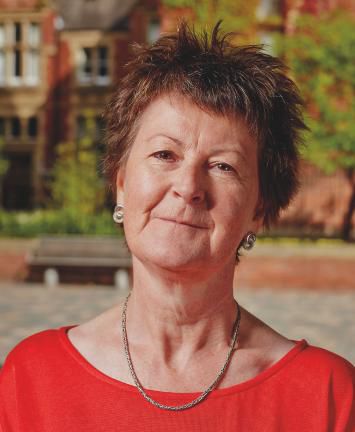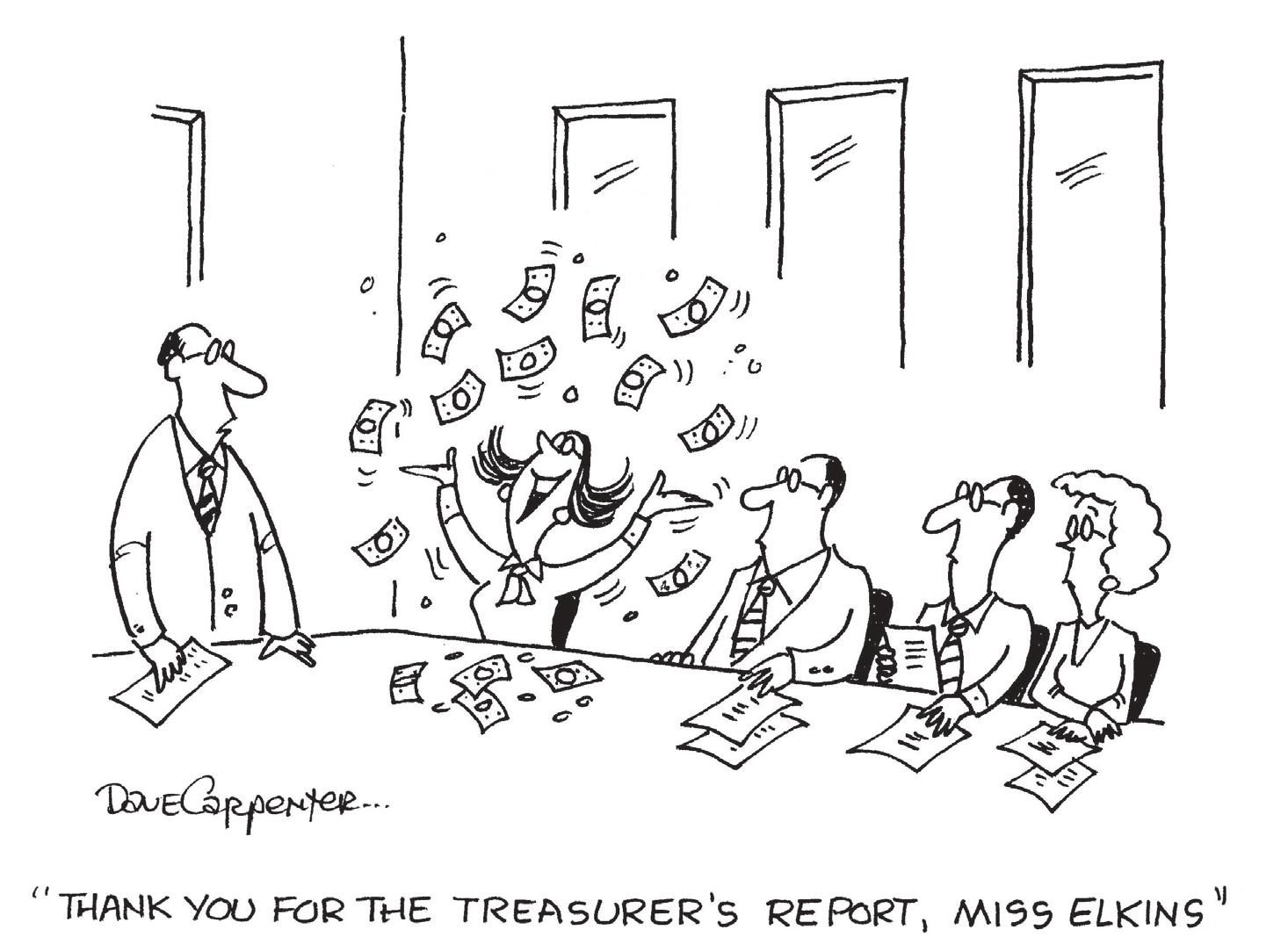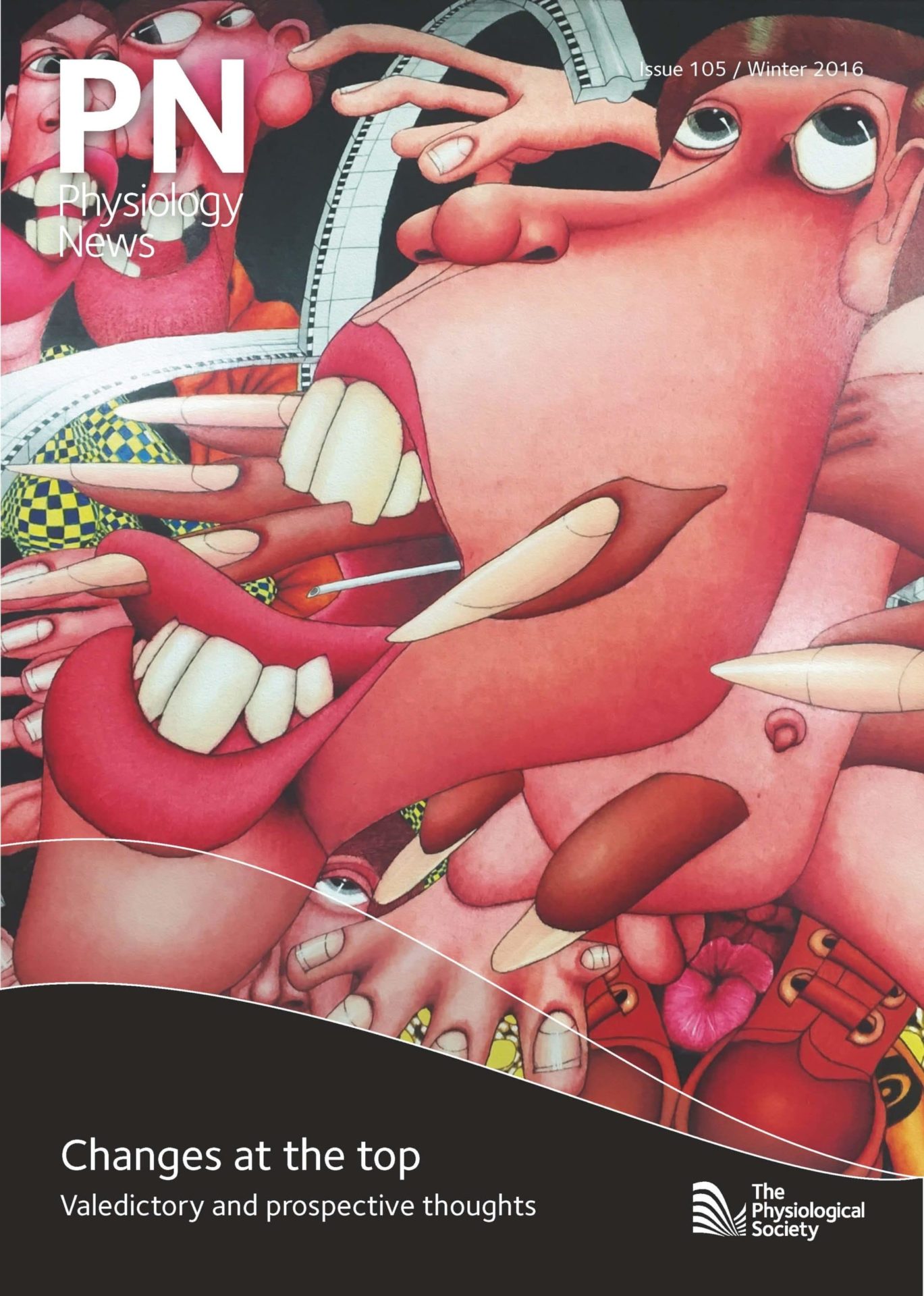
Physiology News Magazine
The face of finance: the Honorary Treasurer explains her role in keeping The Society solvent
Membership
The face of finance: the Honorary Treasurer explains her role in keeping The Society solvent
Membership
Anne King
Honorary Treasurer, The Physiological Society
https://static.physoc.org/app/uploads/2019/12/09132509/pn.105.36.Annie-King.jpg

I assumed the role of Honorary Treasurer in 2013, following in the footsteps of distinguished previous incumbents including Rod Dimaline, Graham McGeown and Jeremy Ward. In 2015, we celebrated 100 years of Women’s Membership of The Society so it is a particular privilege to be the first female Honorary Treasurer at this time. In a list of previous Society Officers, I discovered that whilst I might be, to date, the only female Honorary Treasurer, I am not the first from Leeds University. That distinction goes to BA McSwiney FRS, erstwhile Professor of Physiology, who held this office for a heroic 11 years across 1934-1945. Considering the tumultuous historical world-changing events encompassed within these dates, my own hand-wringing over the potential impact of GREXIT and more recently BREXIT on our current and future finances seems a tad melodramatic – but more on that later.
On my first reading of the ‘job description’, the rather long list of roles and esponsibilities attributable to the Honorary Treasurer was quite daunting. Indeed you are right, perhaps I should have thought about this before I uttered ‘yes’ so fulsomely. Most scientists like me are used to manipulating data and numbers but rarely have a background in business or financial accounting. Consequently, the language of finance and accountancy that I was going to have to get used to seemed initially impenetrable. What does the acronym SORP stand for? What is a fiscal period (sounds painful?). What are ‘tangible’ assets and why are some assets but not others subject to annual depreciation? Would I ever be able to understand Ninja Casey’s multi-layered Excel spreadsheets? The answer to that is no, actually. Would I be the first Honorary Treasurer to bankrupt The Society? These and many other unknowns suddenly presented themselves, necessitating a climb up a very steep learning curve in a short space of time. But setting these short-term challenges against the skills and experience I acquired, plus the fact that I gained an in-depth understanding of all aspects of The Society’s business, then for me personally the equation is well-balanced.


On assuming my new role, I rapidly appreciated the considerable support that came firstly, from our Finance Director, Casey Early and secondly, from all the members of the Finance Committee. Another route to my acquisition of requisite skills and knowledge was attendance at courses such as ‘Charity Finance – the Essentials’, ‘The Role of the Honorary Treasurer’ and ‘Risk Management’. One of the most enjoyable aspects of attending these was the opportunity to meet with a multitude of enthusiastic delegates from a diversity of UK charities, including many I had never heard of. An Edinburgher by birth, I still have the contact details for the charity Royal Society for the Relief of Indigent Gentlewomen of Scotland – just in case! So let me take this opportunity to introduce you to the team who provide essential financial oversight and play an important part in strategy, planning and governance as it relates to finance. Many of you will know and have met our extremely knowledgeable Finance Director, Casey Early who recently completed a period as Interim CEO. Far fewer of you will have met our Finance Manager Gabina Alfonso who has the important job of, amongst other things, safely and securely moving our monies around and making sure all the bills get paid in a timely manner. Finance Committee membership is currently Bridget Lumb (our new Vice-President, Bristol University), Lucia Sivilotti (University College London), Frank Sengpiel (Cardiff University), Stuart Gray (Glasgow University) plus two independent members, Mike Russell (former Finance Director of the Zoological Society, surely not referring to our Finance Committee when he said ‘proximity to animals had become a key part of his working life’) and Richard Fass (a strong background in Charity Finance having been Treasurer and Trustee of several other health-related charities). The collective acumen and the sterling work of this team on behalf of The Society are herein acknowledged.
So what does the Honorary Treasurer actually do apart from act as Chair of the Finance Committee? The Society operates as a charity and so an important governance duty is to ensure that our accounting and auditing processes comply with statutory legal and regulatory requirements. The financial year follows a certain unvarying pattern that, in part, defines our activities – annual budgets and forecasts, income assumptions, investment reports and the audit exercise are all calendar firmaments. But for me personally, the most important job is to ensure that the trustees, the officers of The Society and Council understand the financial underpinning of The Society. This includes an appreciation of first, where The Society’s money comes from and second, how it is being used to support its many charitable activities. All trustees have a duty and responsibility with respect to financial decision making and strategic planning but understandably look to the Honorary Treasurer and the Finance Committee for guidance. Few folks wish to spend several hours wading through detailed accounts and, in analogy with the delivery of a lecture to undergraduates, glazed eyes and befuddled expressions across the audience are a sure cue that you are missing your target in terms of communication. Our trustees and the membership are involved because they wish to interact with a network of like-minded individuals to support Physiology through activities driven by the various committees in areas such as publishing, meetings, education, outreach and science policy. So the essence of the role of the Honorary Treasurer is to distil and reduce financial facts into a format that can be grasped by anyone with a mind to think about it for a while. In other words, speak plain English. None of us should be beholden to self-appointed ‘experts’ who often have a less tenuous grasp of the facts than they would have us believe. Witness the recent catastrophic unravelling of the global banking sector and the systemic breakdown of totemic institutions managed and run by ‘experts’. Sound financial strategy is reliant on an understanding of the actual rather than imagined wealth of any institution and the Finance Committee has been working towards provision of accessible quarterly management accounts to inform all of us about the status of The Society’s financial health. We have also provided staff and trustees with workshops on aspects of charity finance such as investments or risk management which were well attended and informative.
I often hear members say ‘The Physiological Society is wealthy’ and indeed we are fortunate to have a strong and sustained income stream largely through the publication of our highly respected journals; The Journal of Physiology, Experimental Physiology and Physiological Reports. The first volume of our flagship publication The Journal of Physiology appeared in March of 1878 and included papers from Sydney Ringer, WH Gaskell and JN Langley. There is every prospect and expectation that The Society’s prosperity will continue undiminished and that our charitable activities and scientific endeavours will endure and expand. But which one of these early authors could have conceived of how the scientific publishing landscape would look in the post-internet 21st century? Indeed I challenge any of you to predict how the issues faced now – open-access mandates, data (ir)reproducibility, validity of peer review, prodigious expansion of journals (~30,000) to name but a few – will be resolved. In addition to publications, which together generate ~90% of our income, The Society has a substantive investment portfolio which supplements our income and, as importantly to my mind, gives us another means to establish future security. Those of you who have attended the AGM or have perused The Annual Report will appreciate the pressures created by the current turbulence in the financial environment. Since becoming Honorary Treasurer, we have faced both Grexit and Brexit and I, along with many others, have found the rollercoaster ride rather unpleasant. There is a saying that ‘a full purse is not as good as an empty one is bad’. So how do we protect ourselves and build in resilience for the long-term? All trustees have a duty of prudence to safeguard the assets of the charity – these are not just for use as a piggybank by us the current membership, but are there to guarantee the future too. One strategy is through the reserves fund – well-managed charities should have sufficient reserves to cover known liabilities, absorb setbacks or capture opportunities. The topic of ‘reserves’ is a bit like ‘governance’ – only mildly interesting to most of us. But the sorry demise of high profile charities such as Kids Company, resulting at least partly from the lack of adequate reserves and poor governance, reminds us of their importance. Our recently established ‘perpetuity’ reserves model seeks to grow the reserves to a level that would allow The Society to exist indefinitely even with zero income from other sources. The investment-backed reserves are projected to reach the target level by 2024 on the not unreasonable proviso that The Society can move towards a break-even cash budget by 2020.

At the risk of triggering a flood of comments into the Editor’s in-box, I thought I would finish by saying something on the sometimes controversial topic of ethical investments. The reason for this is firstly, it is one of the most frequently asked questions I receive as Honorary Treasurer and secondly, this issue is raised without fail at The Society’s AGM, Dublin P16 being no exception. It was also one of the first questions I asked when I began to scrutinize our investments portfolio. Do we have investments in the payday lender Wonga? But what does the term ‘ethical investment’ actually mean? Divestment from sin stocks, typically pornography, gambling, tobacco and munitions, in my view does not instantly make you an ethical investor. Companies can misbehave on environmental, societal and governance (ESG) fronts. Egregious behavior and corruption within institutions with apparently gold-plated international reputations is well-documented. Some fund managers are unapologetic about investing in the US Barrier Fund, also known as the Vice Fund, which deliberately targets sin stocks and cite as justification the high returns even during recessions. But the primary driver for investment decisions has to be more than financial. The term ‘responsible investing’ is used in the industry and better reflects our own current strategy. To this end, there is an expectation of striking a balance between the aims and values of The Society, the return on our assets and where our money is invested. Cazenove Capital Management manages our funds in accordance with The Society’s agreed investment strategy which accepts a degree of risk in order to generate long term capital growth. As one of the biggest fund managers for the charity sector, they achieved the highest ESG score of A+ in the independent UN Principles of Responsible Investment annual assessment. I don’t doubt that many of our members have strong views on this topic – send them to the Editor, not me!
In conclusion, I can genuinely say that I am thoroughly enjoying my stint as Honorary Treasurer. It is a real pleasure to work with the Finance Committee, the Officers and Trustees of The Society, the membership and the dedicated professional staff at Hodgkin Huxley House. Looking ahead, my term as Honorary Treasurer will be complete in 2017 – how quickly the 4 years will have flown by. Soon it will be necessary to identify someone interested to take this job on for the next four years. Might that be you? If yes, then feel free to contact me as I would be happy to answer any questions you might have. So what, I hear you ask, are the key attributes you need to fulfil this role? I can start more easily with what you don’t need – you most certainly don’t need an MBA, a degree in Economics or an accountancy qualification, you don’t need to become the Wolf of Wall Street or compete with George Soros and you don’t have to take out a subscription to the Financial Times. What do you need? Mainly the desire and the time to commit to the role but as important is to be the sort of person who can keep a cool head when the world’s next financial meltdown hits… but that will not happen any time soon… right?!
